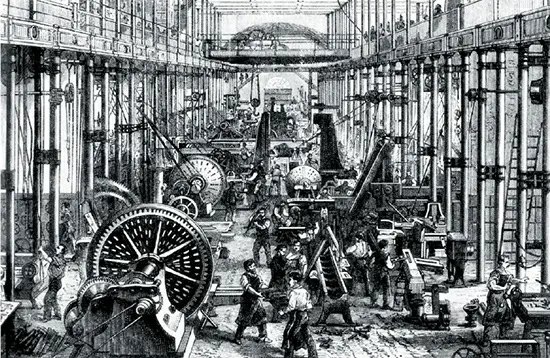The Industrial Revolution, a pivotal era in human history, began around 1760 in Britain and spread globally by 1830. This period marked a significant shift from manual production to machine-led mass manufacturing, revolutionizing various industries and profoundly influencing global society and the environment.
Key innovations of this era included the introduction of steam power, the rise of factories, and advances in the textile, chemical, and iron and steel industries. The revolution drastically increased the demand for natural resources and raw materials, leading to extensive deforestation, expanded farming and grazing lands, and a surge in mining activities. This, in turn, necessitated the development of expansive transportation networks and gas lighting systems.
While the Industrial Revolution brought about remarkable technological progress and improved standards of living, it also introduced challenges such as pollution, harsh labor conditions, and the exploitation of workers, including child labor and slavery. Despite these issues, this transformative period set the stage for modern technological advancements and shaped contemporary perspectives on the relationship between human activity and the natural environment.

